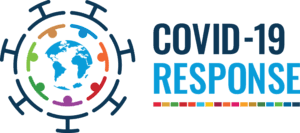By Dr António Guterres
When I presented Our Common Agenda report in September, I said the world faced a stark choice, between a breakdown scenario of growing tensions, environmental degradation, climate chaos and instability and a breakthrough towards a safer, more peaceful future.
Our common agenda is aimed at addressing this crisis head on, so that we can turbocharge the implementation of Agenda 2030, rescue the Sustainable Developments Goals (SDGs) and get them back on track, before it is too late.
There are a number of proposals that require a clear direction and decisions by Member States, and considerable additional work by the United Nations system in support. These include, among others, the Summit of the Future; the 2025 World Social Summit, reform of the international financial system; the Dialogue on Outer Space and the Global Digital Compact.
Others are the Emergency Platform, identifying complementary measures to GDP; establishing a joint structure on financial integrity and illicit financial flows, a Declaration on Future Generations the United Nations Youth Office; and General Assembly.
Measures to address the territorial threats of climate change and responses to environmental displacement are also involved. Since then, developments only served to reinforce the dangers of breakdown. COVID-19 continues to wreak havoc. The global financial system is failing most of humanity.
Inequalities are skyrocketing and undermining the implementation of the SDGs. Species are disappearing faster than ever before.
Climate action is too slow to avert catastrophe.
Technology continues to drive us, rather than the other way around.
And tensions between States are high and rising.
We are on a precipice – but we have the power to pull back from the brink.
It is not too late to make the right decisions, particularly for those who are being left behind.
But we don’t have a moment to lose.
The well-being of people around the world, the health of our planet and the survival of future generations, depend on our willingness to come together around a commitment to collectively solve the problems and take action.
The preeminent agreement on which we need urgent action is the 2030 Agenda, our agreed blueprint for securing lives of peace, dignity and opportunity for all on a healthy planet, and putting inclusive development at the centre of our common work.
With only eight years to go until 2030 and with COVID-19 driving us further off track, we must do everything in our power to rescue the SDGs and the Paris Agreement.
People, who were already vulnerable are now even further behind.
Communities that were struggling are now in survival mode.
Some 100 million more people have been pushed into extreme poverty.
Over 160 million people have been added to those facing hunger.
We face the worst jobs crisis, since the Great Depression, with hundreds of millions of people out of work or underemployed, especially in the developing world, and feeling a deep sense of anxiety and insecurity for the future.
Young people have suffered serious setbacks to their learning, mental health and opportunities.
As always, women and girls are disproportionately affected, and gender inequality is, again. worsening.
With the financial system failing the global south, the divergence between developed and developing countries is becoming systemic.
Our agenda is aimed at this crisis head on, so that we can turbocharge the implementation of Agenda 2030, rescue the SDGs and get them back on track.
It calls for a New Global Deal to ensure that power, wealth and opportunities are shared more broadly and fairly at the international level.
It aims at re-balancing power and financial resources, enabling developing countries to invest in the 2030 Agenda and the SDGs.
Global financial governance is dominated by the richest economies today.
Success is judged by narrow, short-term measures of profit and growth, divorced from other areas of international agenda-setting and decision-making.
There is no one-size-fits-all social contract.
All countries have different situations, and governments should define the nature and substance of their social contract according to their specific needs and priorities based on the principle of national ownership.
To advance SDG 3, my report calls for mechanisms to manage health as a global public good.
They include a global vaccination plan to end the COVID-19 pandemic and strengthening the independence, authority, and financing of the World Health Organization(WHO), so that it can play a full role in pandemic preparedness and response.
The COVID-19 pandemic could be defeated this year but only if vaccines, tests and treatments are made available to all people.
Vaccine inequity is the biggest moral failure of our times and people are paying the price for it.
Until and unless we can ensure access to these tools, the pandemic will not go away, and the sense of insecurity of people will only deepen.
Three immediate priorities that “are worrying me enormously” are lack of vaccinations in large parts of the world, especially in Africa, the need to reduce emissions by 45 percent and the “extremely unjust” financial situation in the world that favors rich countries.






